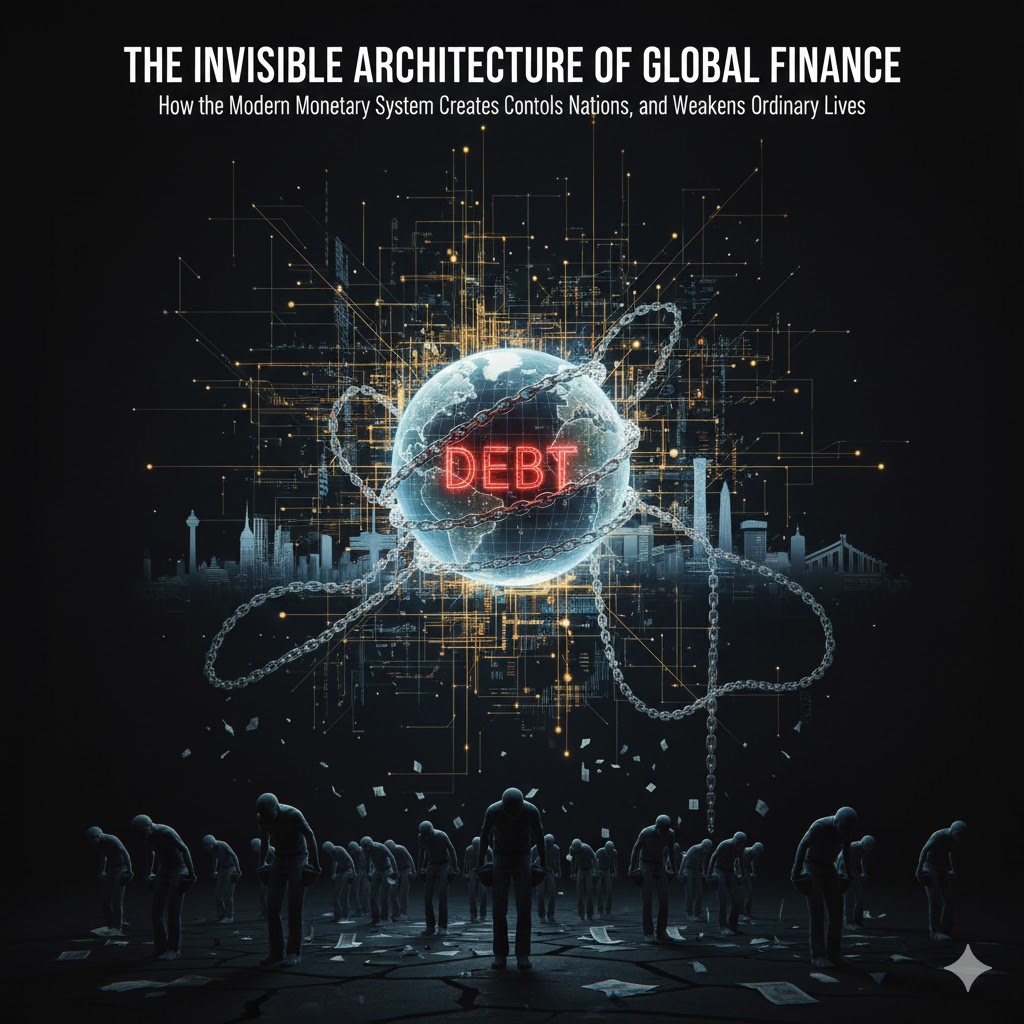Introduction: Bill Gates, a name synonymous with innovation and philanthropy, has left an indelible mark on the world through his pioneering work in technology and his dedication to global health and education. As the co-founder of Microsoft Corporation and one of the wealthiest individuals globally, Gates’ journey is not just a tale of entrepreneurial success but also a testament to the power of vision and strategic philanthropy.
Early Life and Education: Born on October 28, 1955, in Seattle, Washington, William Henry Gates III demonstrated an early aptitude for computer programming. He attended Harvard University but dropped out in 1975 to pursue his vision of a computer on every desk and in every home. This vision laid the foundation for his future endeavors.
Career and Microsoft: In 1975, Gates co-founded Microsoft with Paul Allen, beginning an era of computing revolution. Their breakthrough came with the MS-DOS operating system, licensed to IBM in 1980, which laid the groundwork for Microsoft’s dominance in the software industry. Under Gates’ leadership as CEO, Microsoft became a global powerhouse, setting standards for personal computing and software development.
Technological Visionary: Gates’ foresight extended beyond software development. He anticipated the transformative potential of the internet and championed its integration into Microsoft products. His strategic decisions, such as focusing on graphical interfaces and user-friendly software, shaped the modern computing experience.
Philanthropy and Global Impact: In 2000, Gates and his then-wife Melinda established the Bill & Melinda Gates Foundation, now one of the world’s largest private charitable foundations. The foundation focuses on global health, education, and poverty alleviation, committing billions to initiatives like eradicating polio, combating HIV/AIDS, and improving access to education worldwide.
Impact on Global Health: Through the Gates Foundation, Gates has been instrumental in supporting vaccination programs, disease eradication efforts, and healthcare infrastructure development in developing countries. His commitment to public health has saved millions of lives and set new benchmarks for philanthropic engagement.
Climate Change and Innovation: In recent years, Gates has expanded his focus to address climate change through investments in clean energy technologies and sustainability initiatives. He advocates for breakthrough innovations that can mitigate the effects of climate change and foster a more sustainable future.
Legacy and Influence: Beyond his technological achievements and philanthropy, Gates’ legacy lies in his profound influence on business practices, innovation culture, and global health policy. His strategic thinking, entrepreneurial spirit, and commitment to social impact continue to inspire entrepreneurs, philanthropists, and leaders worldwide.
Conclusion: Bill Gates’ journey from software pioneer to global philanthropist exemplifies the transformative power of technology and the potential for individuals to make a positive impact on society. His relentless pursuit of innovation and dedication to solving global challenges underscore his legacy as a visionary leader and humanitarian.
In summary, Bill Gates’ story is not just a narrative of business success but a testament to the enduring power of ideas and the importance of using wealth and influence to create meaningful change in the world.
The Victories of Bill Gates: A Legacy of Innovation and Philanthropy
Introduction: Bill Gates, renowned as a pioneer in technology and a leading philanthropist, has achieved numerous victories throughout his career that transcend mere business success. From co-founding Microsoft and revolutionizing the personal computing industry to dedicating his wealth and influence to global health and education through the Bill & Melinda Gates Foundation, Gates’ journey is marked by impactful achievements that have reshaped industries and transformed lives worldwide.
Revolutionizing Computing: One of Bill Gates’ earliest and most significant victories was co-founding Microsoft in 1975. His vision of a computer on every desk and in every home propelled Microsoft to become the dominant force in personal computing. The development of MS-DOS and later Windows operating systems set new standards for software usability and functionality, fundamentally changing how individuals and businesses interacted with computers.
Global Technological Influence: Under Gates’ leadership as CEO, Microsoft became synonymous with innovation. His strategic decisions to embrace graphical user interfaces and internet technologies positioned the company at the forefront of the digital revolution. Microsoft’s products, from Office productivity suites to Xbox gaming consoles, became integral parts of everyday life, cementing Gates’ legacy as a technological visionary.
Philanthropic Leadership: Beyond the realm of technology, Gates’ victories extend to his unparalleled philanthropic efforts through the Bill & Melinda Gates Foundation. Established in 2000 with his then-wife Melinda, the foundation has committed billions of dollars to combat global health crises, eradicate diseases like polio, and improve access to education worldwide. Gates’ dedication to tackling inequities and empowering marginalized communities has led to measurable improvements in health outcomes and educational opportunities for millions.
Impact on Global Health: One of Gates’ most notable victories in philanthropy has been his leadership in global health initiatives. Through strategic partnerships and investments, the Gates Foundation has played a pivotal role in reducing child mortality, combating infectious diseases, and strengthening healthcare systems in developing countries. His advocacy for vaccine research and distribution has saved countless lives and brought the world closer to achieving major public health milestones.
Championing Education and Innovation: Gates’ victories also encompass his advocacy for education reform and support for innovation in learning technologies. The Gates Foundation has funded initiatives to improve educational outcomes, promote teacher effectiveness, and expand access to high-quality education, particularly in underserved communities. His belief in the transformative power of education as a catalyst for social and economic development continues to drive impactful change.
Commitment to Climate Change and Sustainability: In recent years, Gates has expanded his philanthropic efforts to address climate change and promote sustainability. Through investments in clean energy technologies and advocacy for global climate action, Gates aims to mitigate the environmental impact of human activities and foster a more sustainable future for generations to come.
Legacy and Inspiration: Bill Gates’ victories, both in technology and philanthropy, leave a lasting legacy of innovation, leadership, and humanitarianism. His ability to foresee future trends, drive industry-wide transformation, and leverage wealth for social good serves as a model for aspiring entrepreneurs, philanthropists, and leaders worldwide. Gates’ journey is a testament to the profound impact that one individual can have on shaping the course of history and improving the lives of millions.
Conclusion: Bill Gates’ victories span decades and continents, from revolutionizing computing to reshaping global health and education landscapes through strategic philanthropy. His commitment to innovation, social impact, and global collaboration exemplifies the power of visionary leadership in addressing the world’s most pressing challenges. As Gates continues to advocate for progress in technology, health, and sustainability, his legacy as a transformative force for good remains unparalleled in modern history.
Bill Gates’ impact on the world can be viewed through several lenses, encompassing technology, philanthropy, global health, education, and sustainability. Here are some key impacts of his contributions:

Technological Innovation:
- Personal Computing Revolution: Gates co-founded Microsoft and played a pivotal role in making personal computers accessible and user-friendly through operating systems like MS-DOS and Windows. This revolutionized how individuals and businesses interacted with computers, laying the foundation for modern computing.
- Software Development Standards: Microsoft’s software products, including Office suites and development tools, set industry standards and became integral parts of global business and personal computing.
- Internet and Digital Transformation: Gates anticipated the transformative potential of the internet and integrated it into Microsoft products, contributing to the rapid growth of the digital economy and online connectivity worldwide.
Philanthropy and Global Health:
- Bill & Melinda Gates Foundation: Established in 2000, the foundation has become a leading philanthropic organization, focusing on global health, poverty alleviation, and education. It has invested billions in initiatives such as eradicating diseases like polio and malaria, improving healthcare infrastructure, and promoting sustainable agriculture.
- Disease Eradication and Public Health: Gates’ advocacy for vaccination programs and disease eradication efforts has saved millions of lives and significantly reduced global disease burdens, particularly in developing countries.
Education and Empowerment:
- Education Reform: Through the Gates Foundation, Gates has supported education reform efforts, including initiatives to improve school effectiveness, enhance teacher quality, and expand access to quality education, particularly in underserved communities.
- Empowering Marginalized Communities: Gates’ philanthropic efforts aim to empower marginalized communities through education, healthcare access, and economic opportunities, thereby contributing to social mobility and sustainable development.
Climate Change and Sustainability:
- Clean Energy and Innovation: Gates has increasingly focused on addressing climate change through investments in clean energy technologies, advocating for research into breakthrough innovations that can mitigate climate impacts and promote sustainability.
Legacy and Influence:
- Business and Entrepreneurship: Gates’ entrepreneurial success with Microsoft and strategic philanthropy through the Gates Foundation has inspired a generation of entrepreneurs, philanthropists, and business leaders to use their wealth and influence for social good and innovation.
- Global Collaboration: Gates’ initiatives often involve partnerships with governments, NGOs, and other stakeholders, fostering global collaboration to tackle complex challenges such as public health crises, education disparities, and environmental sustainability.
In conclusion, Bill Gates’ impact on the world is profound and multifaceted, spanning technological innovation, global health advancements, education reform, and environmental sustainability. His vision, leadership, and strategic philanthropy continue to shape global development and inspire efforts to address some of humanity’s most pressing challenges.
Bill Gates’ achievements are diverse and span multiple fields, reflecting his influence as a technology pioneer, philanthropist, and advocate for global health and education. Here are some key achievements that highlight his impact:
Technological Innovations and Business Leadership:
- Co-founding Microsoft: In 1975, Gates co-founded Microsoft with Paul Allen, starting a journey that would redefine personal computing and software development globally.
- Development of MS-DOS and Windows: Gates’ leadership and vision led Microsoft to develop MS-DOS, the operating system that became a standard for early personal computers. Later, Windows transformed computing by introducing a graphical user interface and becoming the dominant operating system for PCs.
- Expansion into Software Domains: Under Gates’ direction, Microsoft diversified its software offerings, including productivity tools like Microsoft Office and development environments like Visual Studio, shaping the software industry’s standards and practices.
Philanthropy and Global Impact:
- Establishment of the Bill & Melinda Gates Foundation: Founded in 2000 with his then-wife Melinda Gates, the foundation has become one of the largest private philanthropic organizations globally, focusing on global health, education, and poverty alleviation.
- Global Health Initiatives: Gates has been instrumental in supporting efforts to eradicate diseases such as polio and malaria through vaccination campaigns, healthcare infrastructure development, and research funding.
- Education Reform: Through the Gates Foundation, Gates has championed education reform efforts, promoting effective teaching practices, expanding access to quality education, and supporting initiatives to improve educational outcomes, particularly in underserved communities.
Advocacy for Sustainability and Climate Change:
- Investments in Clean Energy and Innovation: Recognizing the urgency of climate change, Gates has invested in clean energy technologies and advocated for breakthrough innovations to address environmental challenges.
Recognition and Influence:
- Global Recognition: Gates’ contributions have earned him numerous awards and honors, including being named Time magazine’s Person of the Year (alongside his wife Melinda and U2’s Bono) in 2005 for their charitable work.
- Influence on Global Health Policy: Gates’ advocacy has shaped global health policy and garnered support from governments, NGOs, and international organizations to address healthcare disparities and promote global health equity.
Continued Impact and Legacy:
- Continued Leadership: Despite stepping down from his day-to-day roles at Microsoft and focusing more on philanthropy, Gates remains influential in technology, global health, and education sectors, driving forward initiatives that aim to improve the human condition worldwide.
Bill Gates’ achievements underscore his transformative impact on technology, public health, education, and global development. His legacy continues to inspire innovation, social responsibility, and collaborative efforts to tackle some of the world’s most pressing challenges.
Bill Gates is often described as having a personality characterized by several key traits that have shaped his success and impact:
Traits of Bill Gates’ Personality:
- Visionary: Gates is known for his forward-thinking and visionary outlook, evident from his early vision of a computer in every home and his foresight in anticipating the transformative power of the internet.
- Intelligence and Curiosity: He possesses a keen intellect and a deep curiosity about technology, business, and global issues, which has driven his continuous learning and innovation.
- Determination and Drive: Gates is renowned for his relentless determination and drive to achieve goals, whether in pioneering Microsoft or in advancing global health and education through his philanthropic efforts.
- Analytical Thinking: His analytical approach to problem-solving is a hallmark of his personality, enabling him to assess complex issues, identify solutions, and make strategic decisions both in business and philanthropy.
- Entrepreneurial Spirit: Gates embodies the entrepreneurial spirit with a willingness to take risks, innovate, and challenge conventions, which has been instrumental in his success with Microsoft and beyond.
- Commitment to Excellence: He values excellence and has maintained high standards in his endeavors, whether in software development, philanthropy, or advocating for global health initiatives.
- Humility and Learning from Failure: Despite his achievements, Gates is known for his humility and willingness to learn from failures. He acknowledges mistakes and uses them as opportunities for growth and improvement.
- Philanthropic Heart: Gates’ philanthropy reflects a compassionate and empathetic personality, driven by a desire to alleviate global inequities and improve the lives of others, particularly in underserved communities.
- Strategic Leadership: As a leader, Gates demonstrates strategic acumen, guiding Microsoft to become a technology powerhouse and leveraging his influence to shape global health policy and education reform through the Bill & Melinda Gates Foundation.
- Commitment to Impact: Throughout his career and philanthropic endeavors, Gates has remained committed to making a positive impact on society, leaving a legacy of innovation, social responsibility, and global collaboration.
Overall, Bill Gates’ personality traits have not only defined his individual success but also shaped his profound influence on technology, philanthropy, and global development, inspiring others to pursue ambitious goals and contribute meaningfully to the world.
Bill Gates’ marriage to Melinda Gates was a significant aspect of his personal life and philanthropic journey. Here are some key points about their marriage:
Partnership and Collaboration:
- Meeting and Relationship: Bill and Melinda Gates met in the late 1980s when Melinda joined Microsoft as a product manager. They developed a close friendship that eventually blossomed into a romantic relationship.
- Marriage: Bill and Melinda Gates were married on January 1, 1994. Their marriage was a partnership based on shared values, mutual respect, and a commitment to making a positive impact on the world.
Philanthropic Collaboration:
- Foundation Establishment: In 2000, Bill and Melinda Gates established the Bill & Melinda Gates Foundation, marking a pivotal moment in their shared philanthropic journey. The foundation aimed to improve global health, alleviate poverty, and expand educational opportunities worldwide.
- Shared Vision: The Gateses’ philanthropic efforts were characterized by their shared vision and complementary strengths. Bill’s analytical approach and business acumen combined with Melinda’s empathy and strategic thinking contributed to the foundation’s success in tackling complex global challenges.
Family and Personal Life:
- Parenting: Bill and Melinda have three children together: two daughters, Jennifer and Phoebe, and a son, Rory. They have prioritized family life alongside their professional and philanthropic endeavors.
- Shared Commitment: Despite their high-profile careers and global philanthropy, Bill and Melinda Gates maintained a strong commitment to their family and shared responsibilities in raising their children.
Separation:
- Announcement: In May 2021, Bill and Melinda Gates announced their decision to divorce after 27 years of marriage. They stated that they would continue to work together on the Bill & Melinda Gates Foundation but recognized that they could no longer grow together as a couple.
- Impact on Foundation: The divorce raised questions about the future of their philanthropic work and the governance of the foundation. Ultimately, they decided to continue their roles as co-chairs and trustees to ensure continuity in their charitable efforts.

Overall, Bill and Melinda Gates’ marriage was characterized by a shared commitment to making a positive impact on global issues through philanthropy, reflecting their deep personal and professional partnership over decades.










